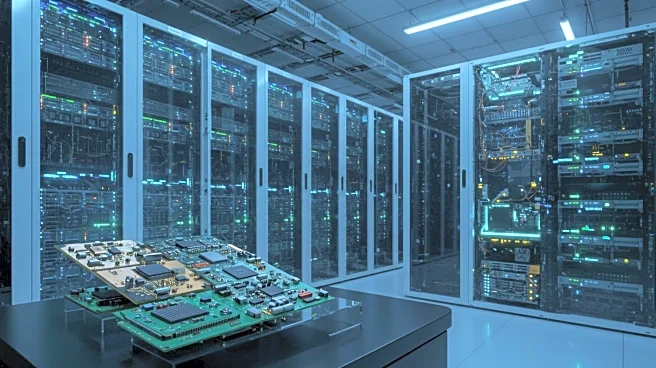What's Happening?
The U.S. government is prioritizing artificial intelligence development by boosting data centers and chip production, despite the imposition of tariffs. The administration released an action plan emphasizing AI's strategic importance for economic growth and national security. Tariffs on imported semiconductors and copper used in circuit boards have been introduced, with exemptions for companies expanding production domestically. Major tech companies like Meta and Microsoft are investing heavily in AI infrastructure, viewing it as crucial for maintaining competitive advantage.
Why It's Important?
The focus on AI development is vital for the U.S. to maintain its leadership in technology innovation. By enhancing data centers and chip production, the country aims to support the growing demand for AI applications across various industries. The tariffs, while potentially increasing costs, are designed to encourage domestic production and reduce reliance on foreign suppliers. This strategy could lead to significant advancements in AI technology, benefiting sectors such as healthcare, finance, and manufacturing, and ensuring national security through technological superiority.
What's Next?
The U.S. government is expected to collaborate more closely with Silicon Valley to reduce infrastructure costs and accelerate AI deployment. This may involve streamlining regulatory procedures and increasing investments in domestic manufacturing. As demand for AI technology continues to rise, further initiatives to support chip production and data center expansion are likely. Stakeholders, including tech companies and policymakers, will need to navigate the challenges posed by tariffs while capitalizing on opportunities for growth and innovation.










